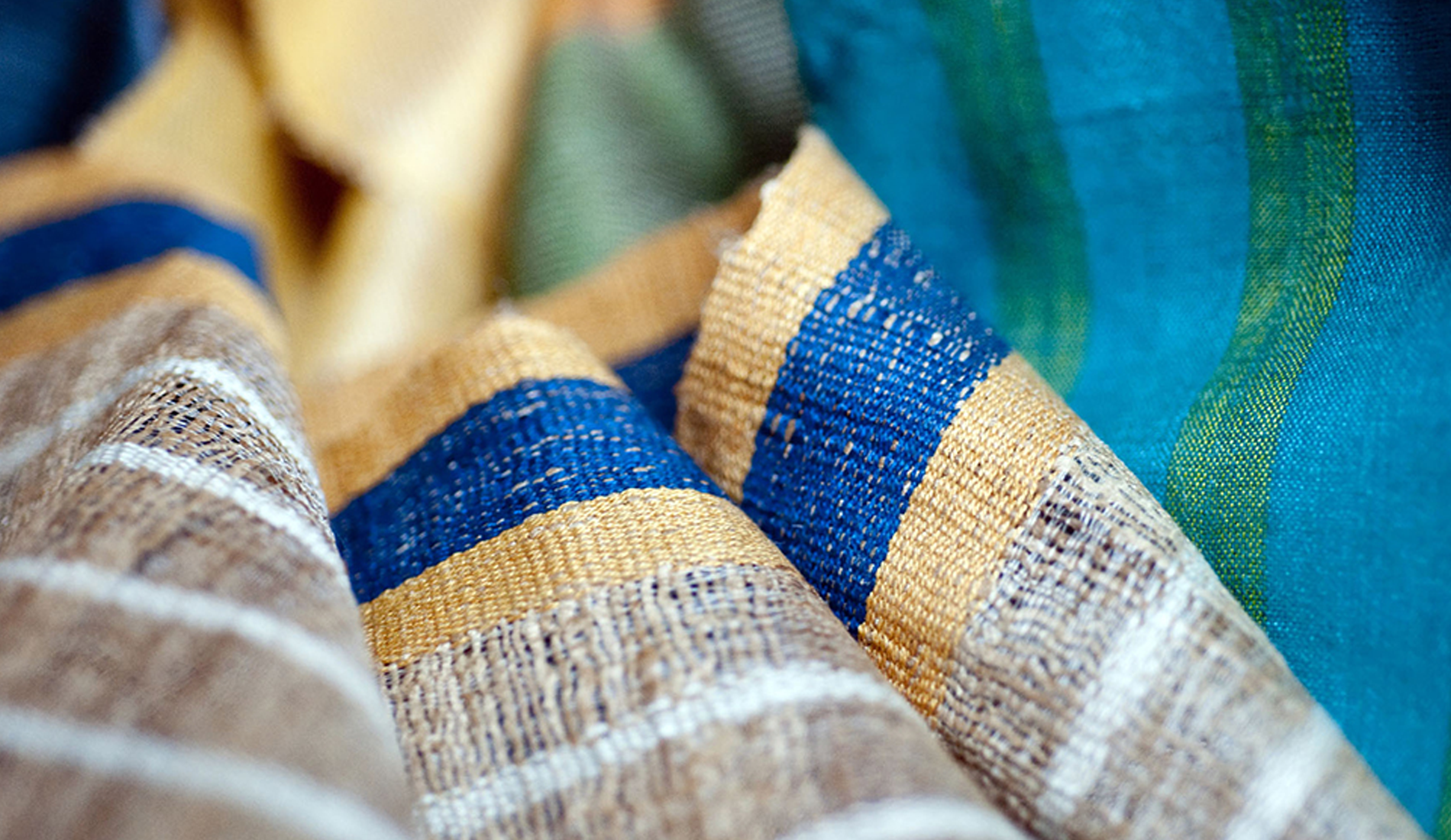
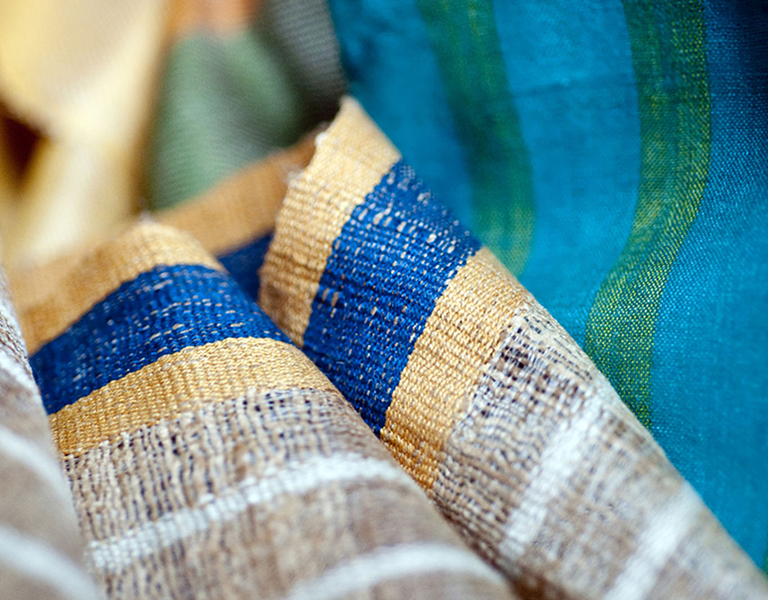
Fibres & Fabrics
Fabric Switch: Sourcing Sustainable Silk
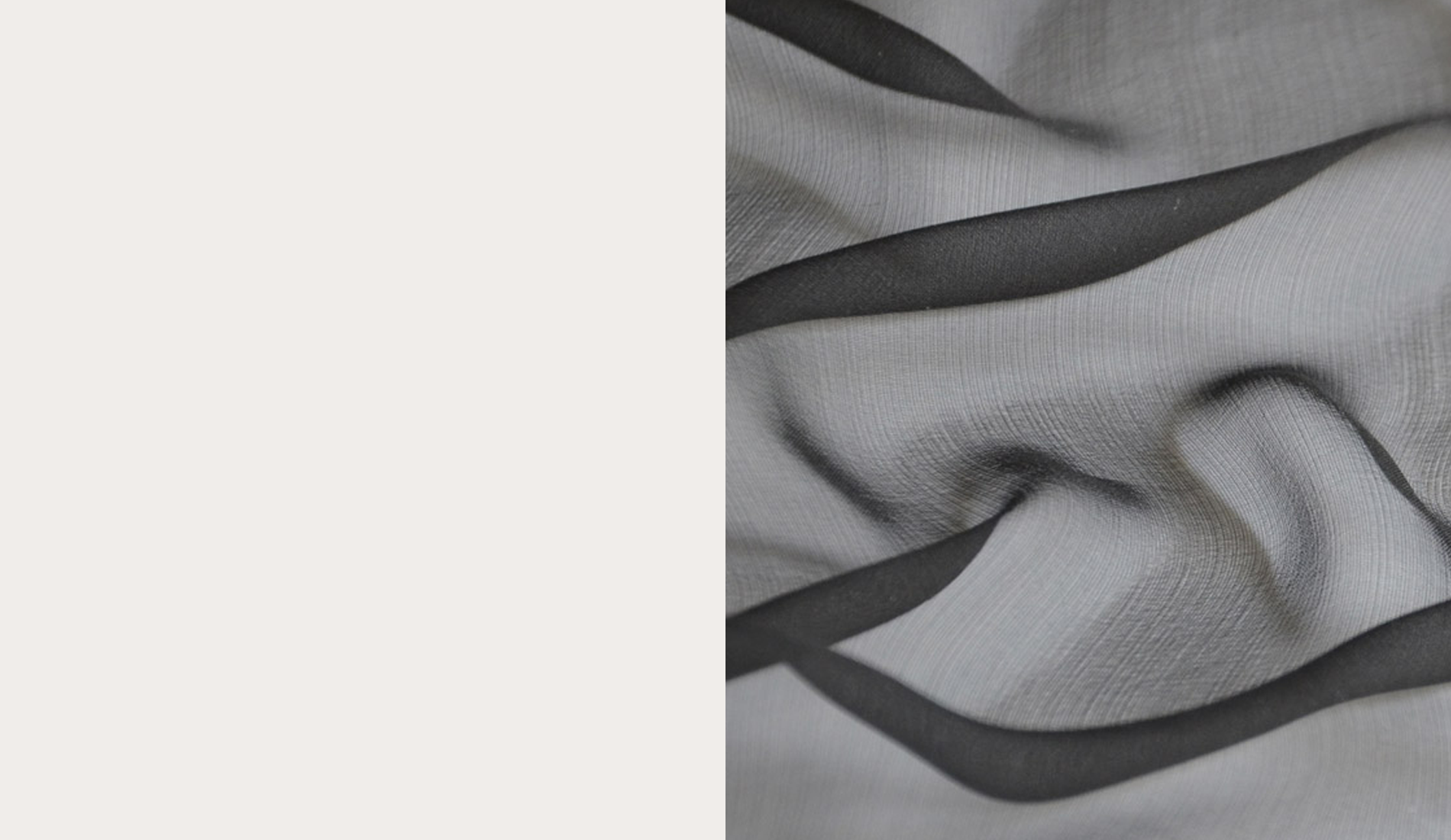
Intro
Prized for its drape, softness and breathability, silk is a staple fibre in the production of luxury garments. It currently only makes up a small proportion of global fibre use, at 0.1%, but has a high unit price of US$15 per kilo.
In a process largely unchanged for centuries, silk is reeled from the cocoons of silkworms and then spun into fine yarn. Social, environmental, and animal welfare concerns around the production of silk have led to innovations in more sustainable alternatives in recent years.

Intro
Prized for its drape, softness and breathability, silk is a staple fibre in the production of luxury garments. It currently only makes up a small proportion of global fibre use, at 0.1%, but has a high unit price of US$15 per kilo.
In a process largely unchanged for centuries, silk is reeled from the cocoons of silkworms and then spun into fine yarn. Social, environmental, and animal welfare concerns around the production of silk have led to innovations in more sustainable alternatives in recent years.

Is silk sustainable?
- 600 billion silkworms are killed each year to produce silk fibre
- Cultivation of mulberry leaves to feed silkworms requires less pesticide and water use than cotton, however the fibre to fabric production of silk is ranked ‘high’ by the Higg Index, mainly due to to high energy use
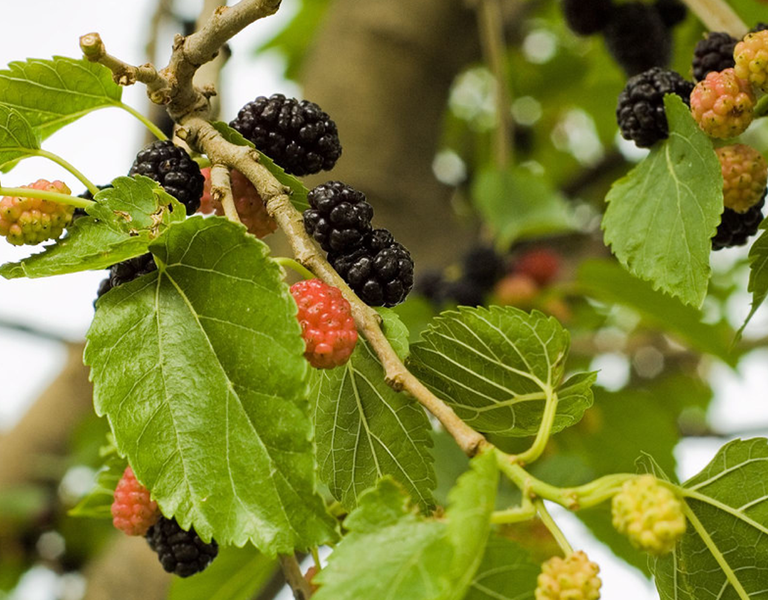
Is silk sustainable?
- 600 billion silkworms are killed each year to produce silk fibre
- Cultivation of mulberry leaves to feed silkworms requires less pesticide and water use than cotton, however the fibre to fabric production of silk is ranked ‘high’ by the Higg Index, mainly due to to high energy use
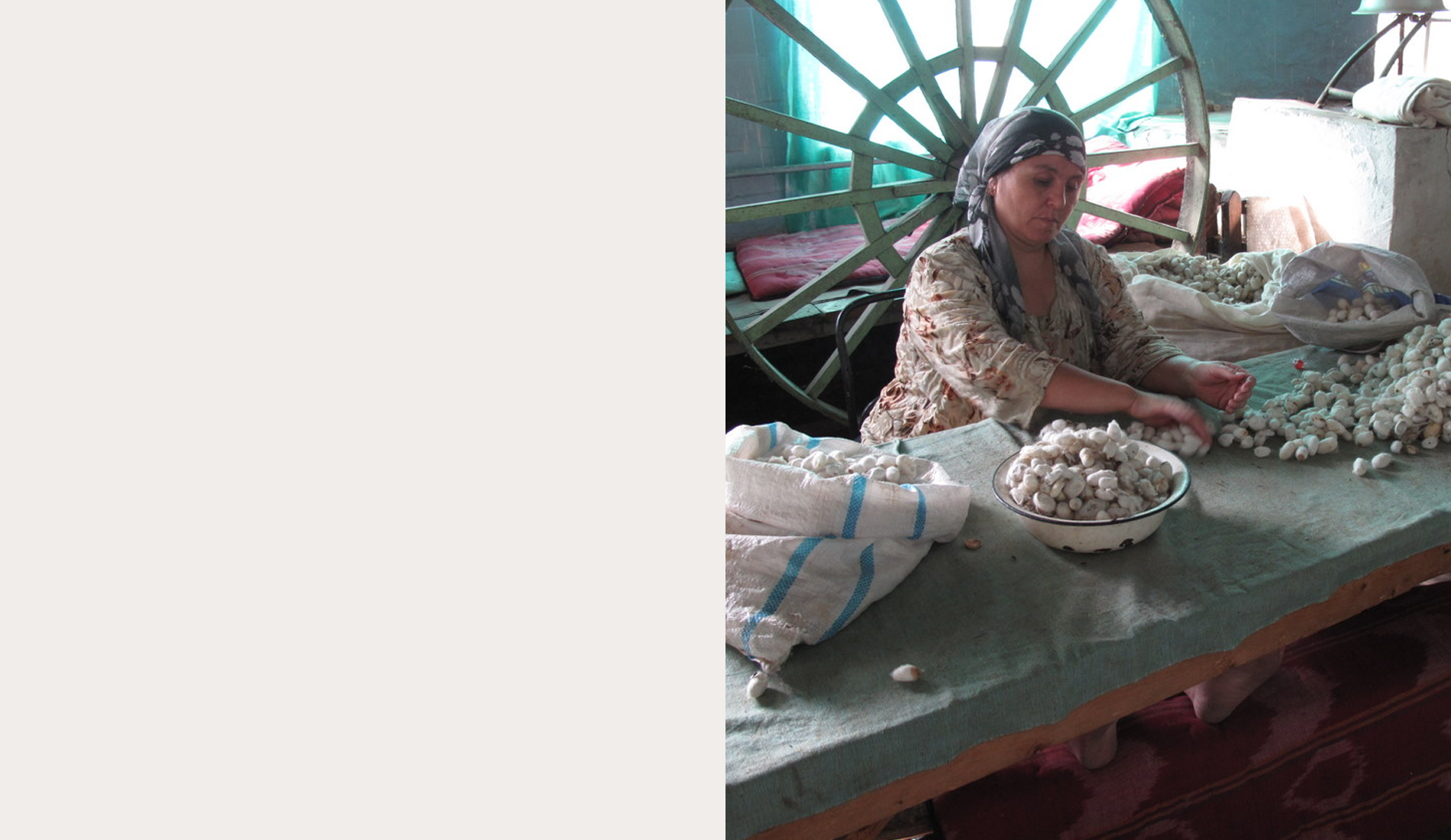
Impact on people
- Uncertainty around the value that is shared amongst those who farm the silkworms or process the thread
- Health issues for farmers and silk ‘reelers’ (who unreel the cocoons using boiling water)
- Reports of bonded child labour in silk production in India and child labour reported in Uzbekistan

Impact on people
- Uncertainty around the value that is shared amongst those who farm the silkworms or process the thread
- Health issues for farmers and silk ‘reelers’ (who unreel the cocoons using boiling water)
- Reports of bonded child labour in silk production in India and child labour reported in Uzbekistan

Income generation projects
Livelihood-Arjuna is a programme based in Jharkhand and West Bengal that supports rural communities to rear silkworms.
The project has three goals:
- Plantation of 3,000 hectares of silk-host trees in wastelands of rural households, represented by women
- Training rural communities in biodiversity and silkworm farming
- Income-generating activities, creating more jobs and securing the livelihoods of people at all stages in the silk chain
Income generation projects
Livelihood-Arjuna is a programme based in Jharkhand and West Bengal that supports rural communities to rear silkworms.
The project has three goals:
- Plantation of 3,000 hectares of silk-host trees in wastelands of rural households, represented by women
- Training rural communities in biodiversity and silkworm farming
- Income-generating activities, creating more jobs and securing the livelihoods of people at all stages in the silk chain

Organic Silk
Certified organic silk is produced without the use of harmful chemicals in the growing and production of the fabric, significantly less water, and meets certain other social and environmental criteria.
See more about the leading organic certification standard, Global Organic Textile Standard (GOTS), here.
Or search the GOTS database for organic silk suppliers.
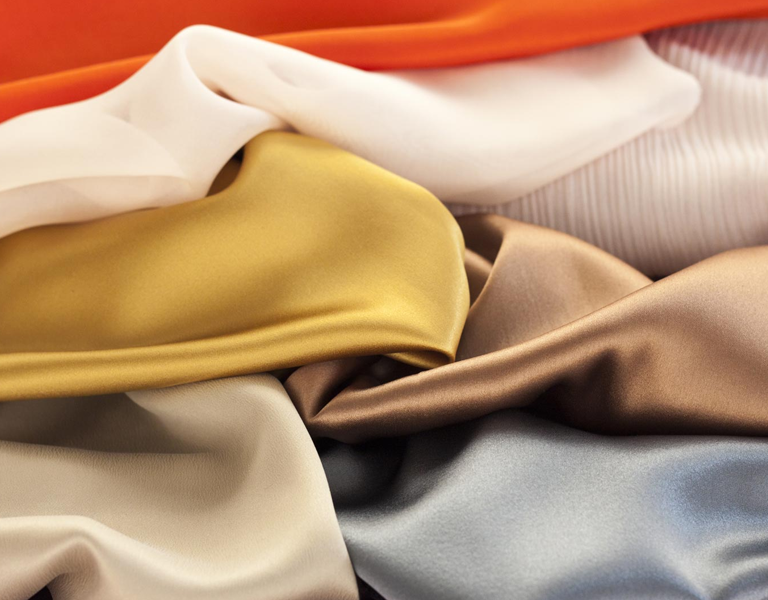
Organic Silk
Certified organic silk is produced without the use of harmful chemicals in the growing and production of the fabric, significantly less water, and meets certain other social and environmental criteria.
See more about the leading organic certification standard, Global Organic Textile Standard (GOTS), here.
Or search the GOTS database for organic silk suppliers.

Ahimsa ‘Peace’ Silk
Based on the concept of non-violence, Ahimsa or Peace silk is made from silkworms, but they are left to complete their full lifecycle, emerging from the cocoons before they are processed.
The emerging moths break the silk thread, creating a shorter length and a different handfeel of the finished textile, but ensures that the animals are not harmed in the production process.
Animal rights group, PETA, do however still warn of poor social and animal rights practices in the production of peace silk.
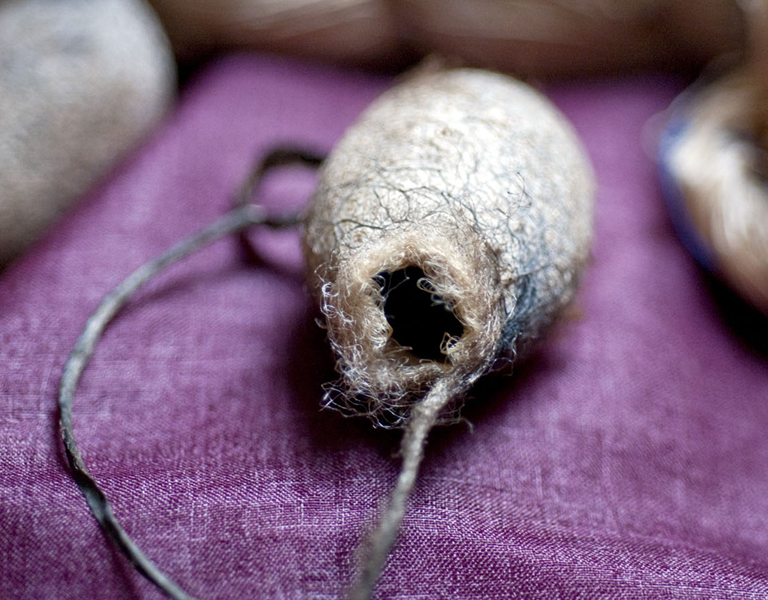
Ahimsa ‘Peace’ Silk
Based on the concept of non-violence, Ahimsa or Peace silk is made from silkworms, but they are left to complete their full lifecycle, emerging from the cocoons before they are processed.
The emerging moths break the silk thread, creating a shorter length and a different handfeel of the finished textile, but ensures that the animals are not harmed in the production process.
Animal rights group, PETA, do however still warn of poor social and animal rights practices in the production of peace silk.
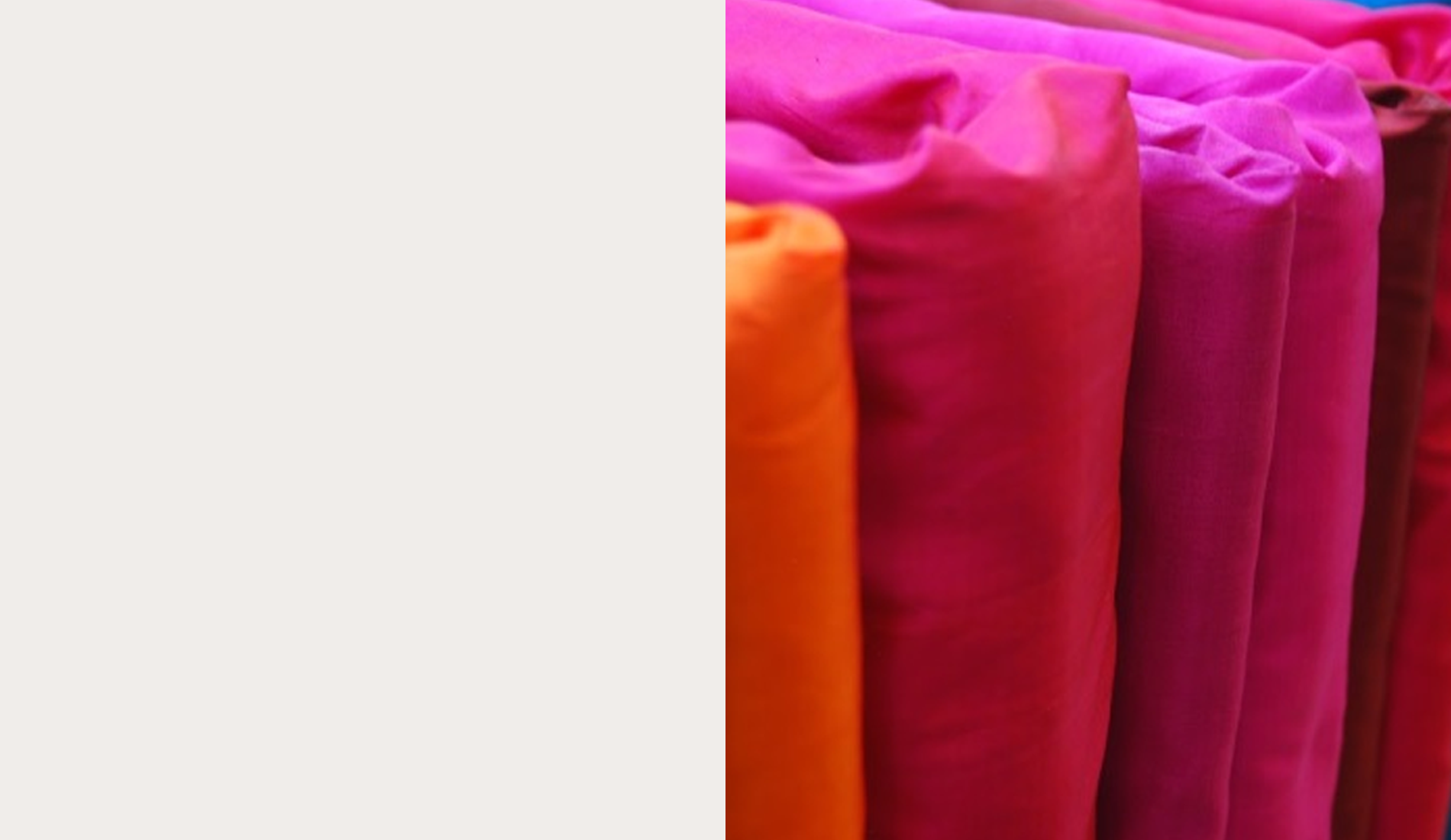
Silk Alternatives
Lotus silk
Made from the fibres in the stem of the lotus flower, this fabric is labour intensive to produce but has many of the desirable qualities inherent in silk - it is naturally soft, lightweight, breathable, and almost wrinkle free.
Samatoa Lotus Textiles in Cambodia have revived this fabric and employ at-risk woman to provide steady income in a safe and positive environment. The mill is run as a Cambodian social business, with Fair Trade principles underpinning their operations.
Image: Samoa Lotus Textiles

Silk Alternatives
Lotus silk
Made from the fibres in the stem of the lotus flower, this fabric is labour intensive to produce but has many of the desirable qualities inherent in silk - it is naturally soft, lightweight, breathable, and almost wrinkle free.
Samatoa Lotus Textiles in Cambodia have revived this fabric and employ at-risk woman to provide steady income in a safe and positive environment. The mill is run as a Cambodian social business, with Fair Trade principles underpinning their operations.
Image: Samoa Lotus Textiles
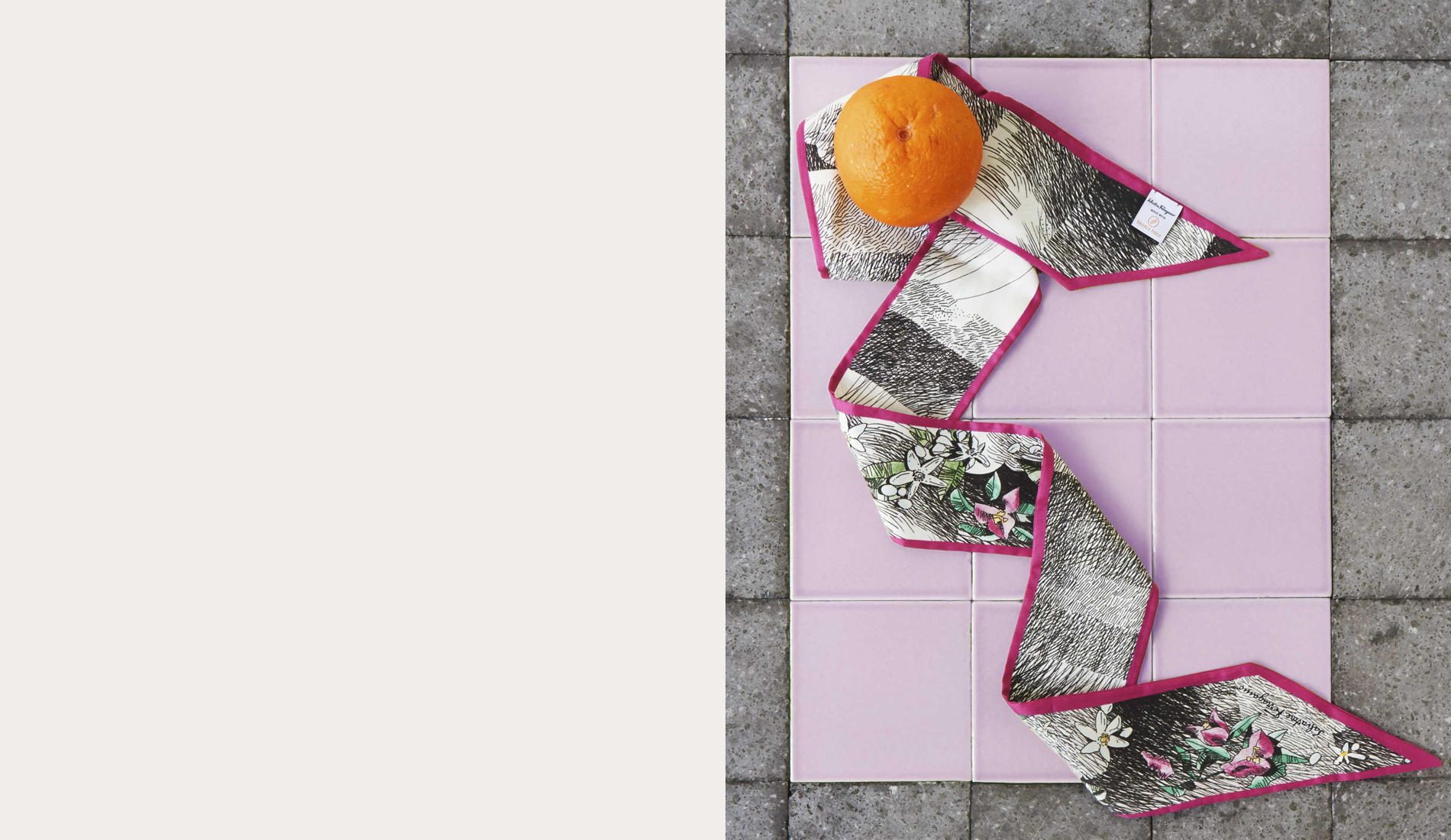
Citrus fibre silk
Over 700,000 tonnes of inedible citrus by-product is produced every year in Italy. The company behind this product, Orange Fiber, takes the citrus waste and transforms it into an innovative, silk-like material through a patented process.
In addition to the silk-like fibre they produce, the product can be blended with other natural yarns to create a variety of fabrics for different purposes, including a stretch jersey and cotton poplin blends.
Image: Salvatore Ferragamo

Citrus fibre silk
Over 700,000 tonnes of inedible citrus by-product is produced every year in Italy. The company behind this product, Orange Fiber, takes the citrus waste and transforms it into an innovative, silk-like material through a patented process.
In addition to the silk-like fibre they produce, the product can be blended with other natural yarns to create a variety of fabrics for different purposes, including a stretch jersey and cotton poplin blends.
Image: Salvatore Ferragamo
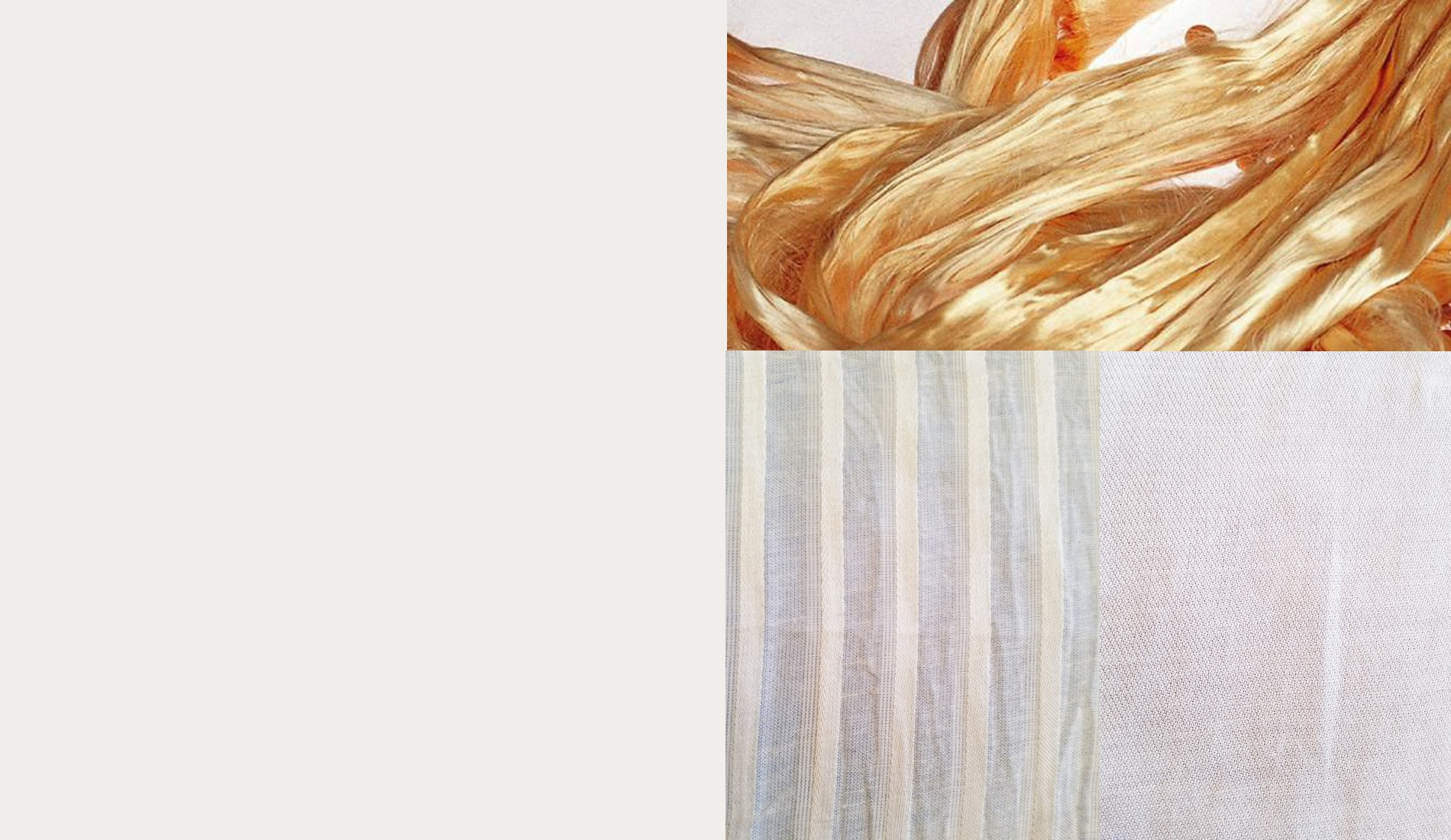
Soy silk
A cellulosic fibre made by Swicofil from soybeans. There are potential environmental issues (in the growing of the soybeans and the chemicals used to process them) but it makes a good vegan silk substitute.
Suppliers of soy fabric include:
Aruna Textiles, India
ZS Fabrics, USA/India
Simplifi Fabrics, USA/Canada
Balavigna Organic, India
Images: Swicofil / ZS Fabrics
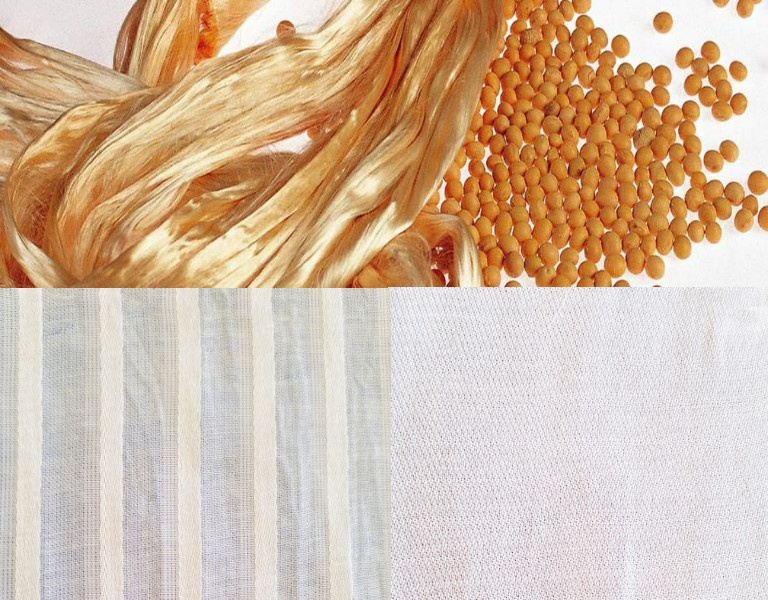
Soy silk
A cellulosic fibre made by Swicofil from soybeans. There are potential environmental issues (in the growing of the soybeans and the chemicals used to process them) but it makes a good vegan silk substitute.
Suppliers of soy fabric include:
Aruna Textiles, India
ZS Fabrics, USA/India
Simplifi Fabrics, USA/Canada
Balavigna Organic, India
Images: Swicofil / ZS Fabrics
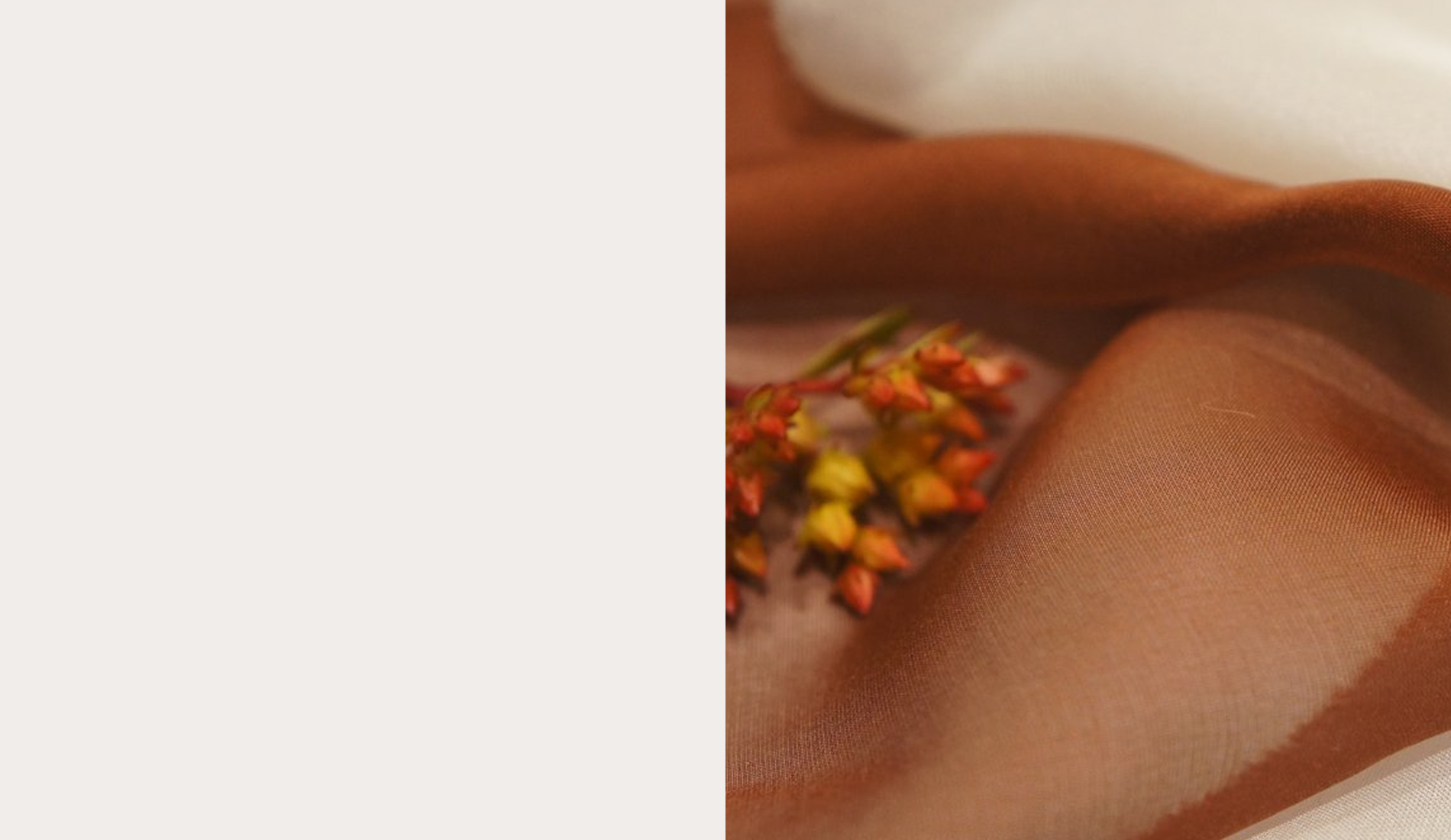
Silk fabric suppliers
Vivify Textiles
Founded in 2015, Vivify aims to be a market leader in sustainable fabrics.
Their range of silks includes organic silk chiffon, georgette, satin and crepe de Chine.

Silk fabric suppliers
Vivify Textiles
Founded in 2015, Vivify aims to be a market leader in sustainable fabrics.
Their range of silks includes organic silk chiffon, georgette, satin and crepe de Chine.
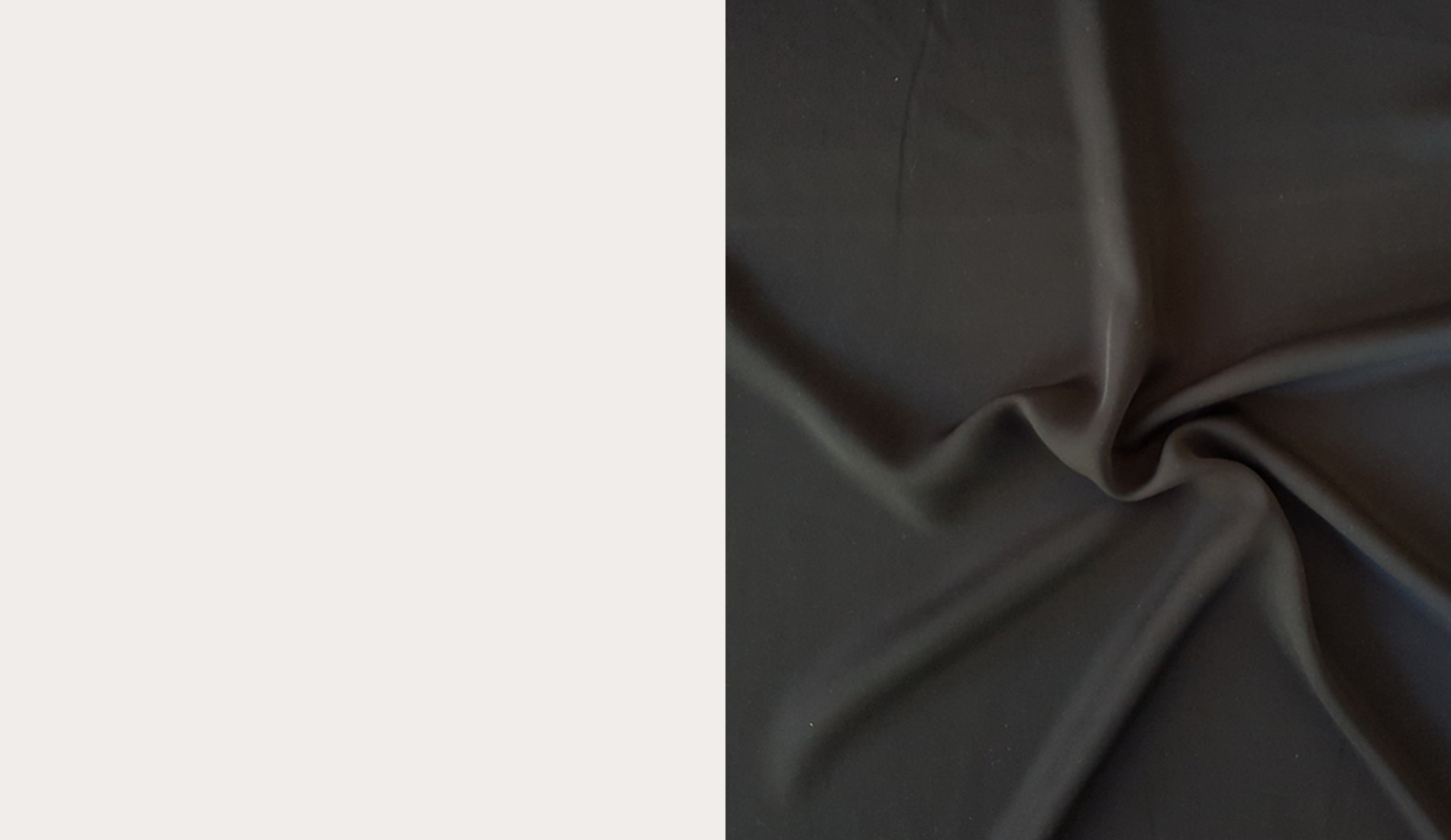
Seidentraum - Organic and Ahimsa
Seidentraum offers a wide range of GOTS certified organic silk fabrics including georgette, chiffon and habotai as well as peace silk and Fair Trade hand woven silk. They also stock hemp and banana silk alternatives.

Seidentraum - Organic and Ahimsa
Seidentraum offers a wide range of GOTS certified organic silk fabrics including georgette, chiffon and habotai as well as peace silk and Fair Trade hand woven silk. They also stock hemp and banana silk alternatives.

Bombyx - Organic and regenerative
Hong Kong-based Bombyx is an ecologically conscious and transparent organization leading the silk industry by offering sustainable, affordable and aspirational silk textiles. They offer a number of fabrics from silks to wovens to knits, as well as silk made from mechanically recycled pre-consumer silk waste from their own manufacturing.
Bombyx is on a mission to set new standards through its transparent business practices and trusted supply chain by integrating social and environmentally responsible approaches to benefit all stakeholders, communities and nature.

Bombyx - Organic and regenerative
Hong Kong-based Bombyx is an ecologically conscious and transparent organization leading the silk industry by offering sustainable, affordable and aspirational silk textiles. They offer a number of fabrics from silks to wovens to knits, as well as silk made from mechanically recycled pre-consumer silk waste from their own manufacturing.
Bombyx is on a mission to set new standards through its transparent business practices and trusted supply chain by integrating social and environmentally responsible approaches to benefit all stakeholders, communities and nature.

Teseo S.p.A - Organic
GOTS-certified Italian mill, TESEO, supplies organic silk fabrics including Crepe Satin, Crepe de Chine, Georgette, habotai, creponne, and Voile Silk / Cotton

Teseo S.p.A - Organic
GOTS-certified Italian mill, TESEO, supplies organic silk fabrics including Crepe Satin, Crepe de Chine, Georgette, habotai, creponne, and Voile Silk / Cotton
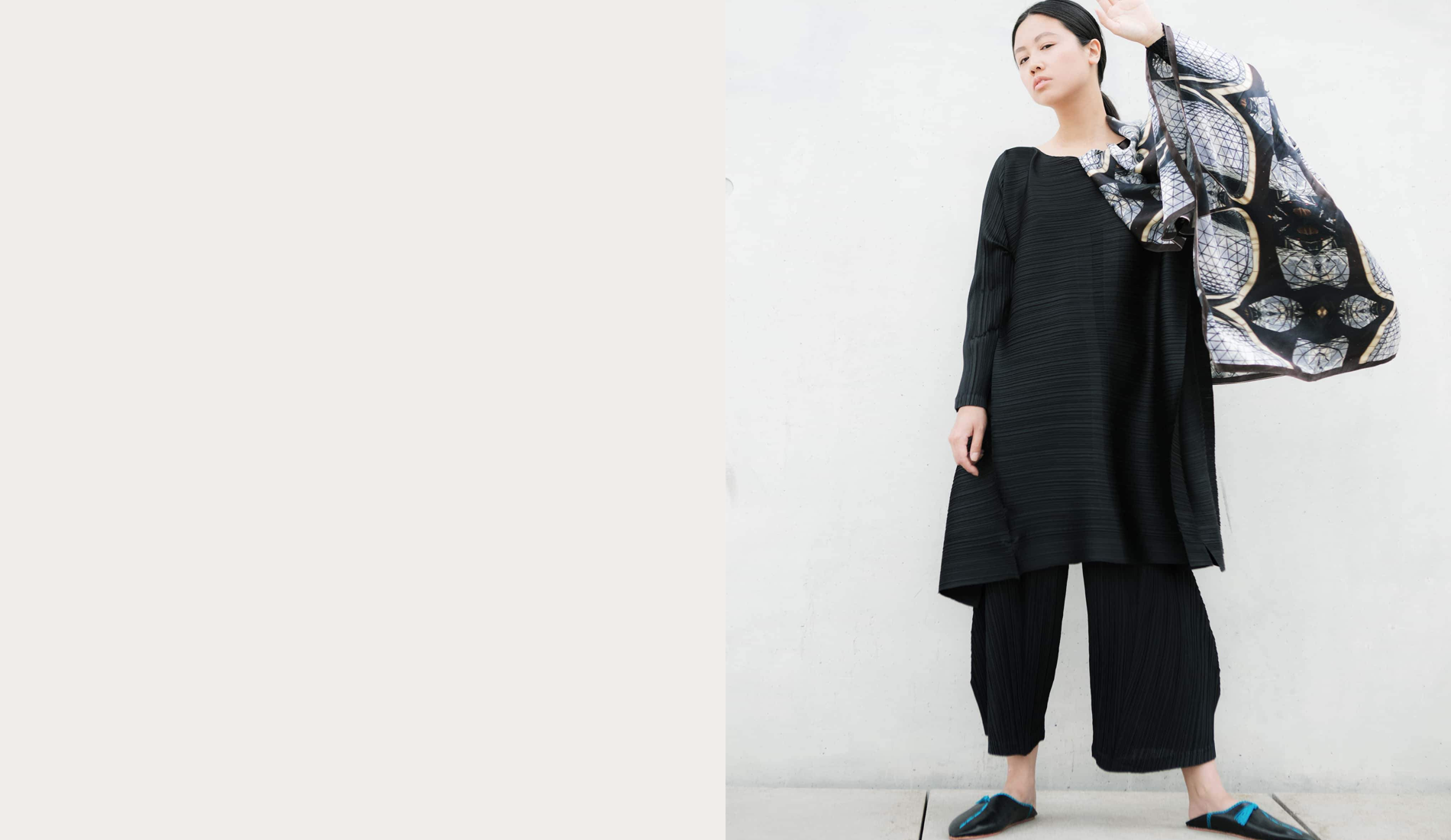
Cocccon - Ahimsa / Peace Silk
Working in Jharkand, India ensuring decent income to silk farmers and spinners, Cocccon use solar power reeling and spinning machines to produce fine silk yarns suitable for high-end luxury fabrics. Cocccon is the fastest growing manufacturer of organically produced, Fair Trade certified peace silk.
Cocccon also have a digital printing facility with custom-made machines, specially designed for peace silk and using GOTS-certified inks.

Cocccon - Ahimsa / Peace Silk
Working in Jharkand, India ensuring decent income to silk farmers and spinners, Cocccon use solar power reeling and spinning machines to produce fine silk yarns suitable for high-end luxury fabrics. Cocccon is the fastest growing manufacturer of organically produced, Fair Trade certified peace silk.
Cocccon also have a digital printing facility with custom-made machines, specially designed for peace silk and using GOTS-certified inks.

Italian excellence - Centro Seta
This 20+ year old Italian mill continually innovates and holds GOTS certification for some of its silk collections.
With its R&D centre in Florence and production in Como, Centro Seta prize themselves on pushing the boundaries of quality, sustainable silk fabrics in a range of qualities and finishes.

Italian excellence - Centro Seta
This 20+ year old Italian mill continually innovates and holds GOTS certification for some of its silk collections.
With its R&D centre in Florence and production in Como, Centro Seta prize themselves on pushing the boundaries of quality, sustainable silk fabrics in a range of qualities and finishes.

Chul Thai - from soil to silk
GOTS-certified organic silk yarn supplier Chul Thai Silk has been in business since 1968, now supporting over 2,000 families in 26 provinces throughout Thailand.
The factory uses high quality Japanese technology and is the largest silk mill in ASEAN with a production capacity of 250 tons per annum.
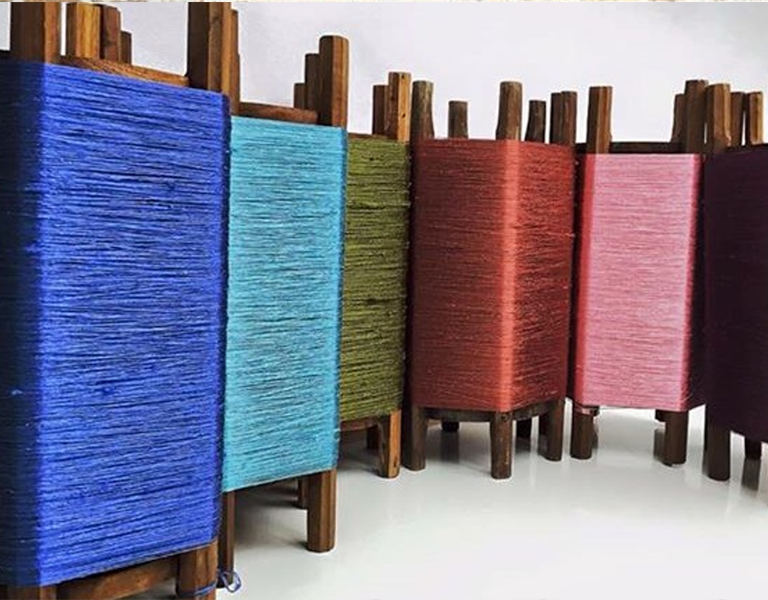
Chul Thai - from soil to silk
GOTS-certified organic silk yarn supplier Chul Thai Silk has been in business since 1968, now supporting over 2,000 families in 26 provinces throughout Thailand.
The factory uses high quality Japanese technology and is the largest silk mill in ASEAN with a production capacity of 250 tons per annum.


First published 10.10.2018 - Updated 03.01.2022
Related Reading
Sign up to connect with 50,000+ other sustainability-minded professionals and access over 300 pieces of actionable intelligence.
Common Objective is a global sourcing and information network that enables you to succeed in sustainable fashion business.
